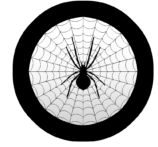”He who runs in every man perishes his life, just as the soul that runs in all souls perishes it’s spirit”-
Biték
Book Blurb: What would you do if you couldn’t die no matter how much danger you’re in? If you couldn’t stop until your life’s mission is accomplished? How would you negotiate divine mandates and human adventures? Biték is a condensed cross-cultural tale of a man with a divine assignment: to save his village from the hands of colonisation.
Once upon a time, we lived in a culturally rich Africa. Every part of the continent had religions and gods that we worshipped and that kept the peace amongst ourselves. And then the white man came and “discovered” our land that flowed with riches that we didn’t know about.
The white man called our religion savage, and our beliefs demonic. He imposed his religion to colonise and subdue us, calling anyone that opposed his rule a heretic or satanic. He took the riches from under our feet. And we lost an entire generation of stories. Until our decolonized writers came and started telling our stories, the way the storytellers of old intended. That’s what this book is.


Biték: He From Whom Death Ran by Massocki Ma Massocki is a fascinating book with a surreal story. The book tells the story of Biték, the author’s grandfather, who just couldn’t die. Biték Bimai is a man who’s been ordained by the ancestors to save his people from death and because of this, death runs from him.
Using the story of Biték, the book delves into the brutal invasion of the Babimbi Empire by the Germans. It explores the effects of colonialism on the populace of Africa and what that did to African spirituality. The book is a history lesson wrapped in an enjoyable read. The book also shows the leader that Biték’s people had developed an intricate political system, going as far as describing this system and the religious system that surrounded it.

Massocki ma Massocki writes this book so beautifully and delicately, endeavouring to preserve the memory of these people. It’s a book that should be academic but also for the casual curious person that wants to learn more about the brutal history of the colonization of Africa. Massocki ma Massocki’s writing is succinct and simple yet very engrossing. His choice of words take you on a journey through the foundation of Cameroon.
We can’t know who we are until we understand where we come from. What the colonizers did was to wipe away that identity by imposing their own. This book is a goes a long way in preserving the cultural heritage of Ndog-Mbog, the Basaa people, and, in general, Cameroon.
A hundred percent recommend to the person curious about Africa’s history and African Spirituality.
Mable Amuron
www.amuron.com

